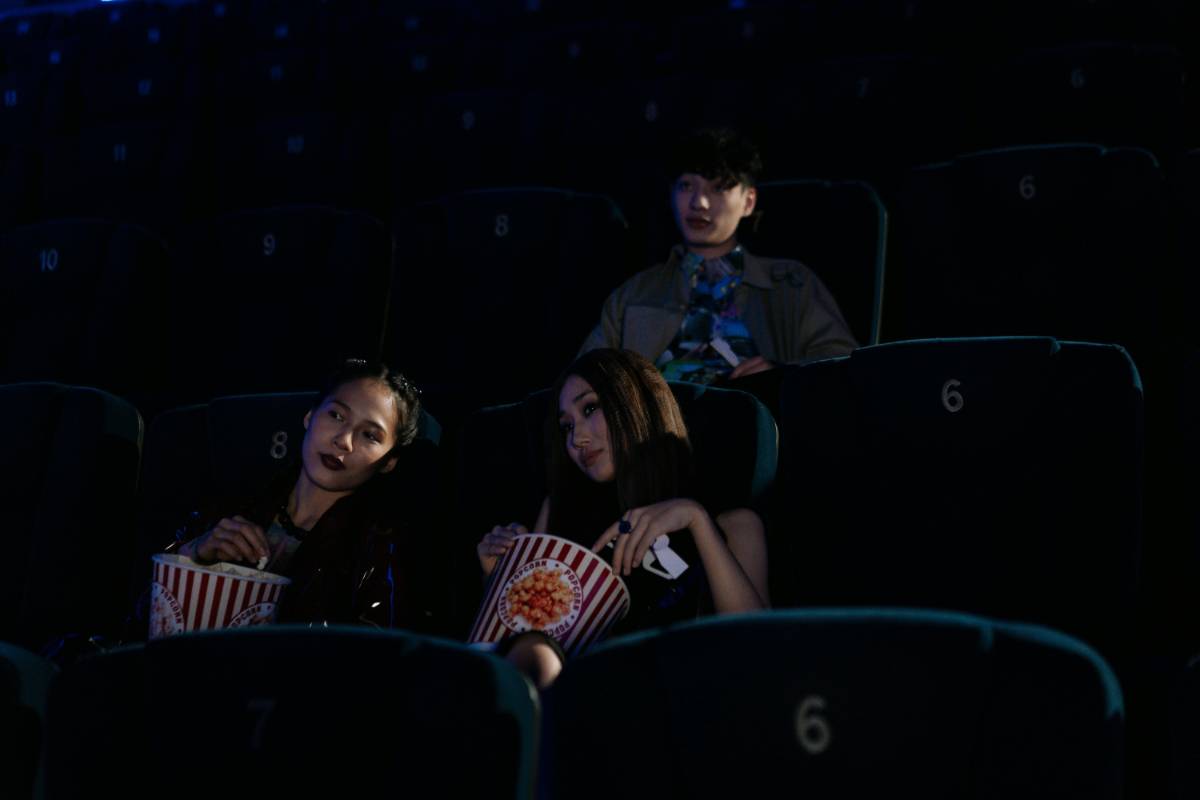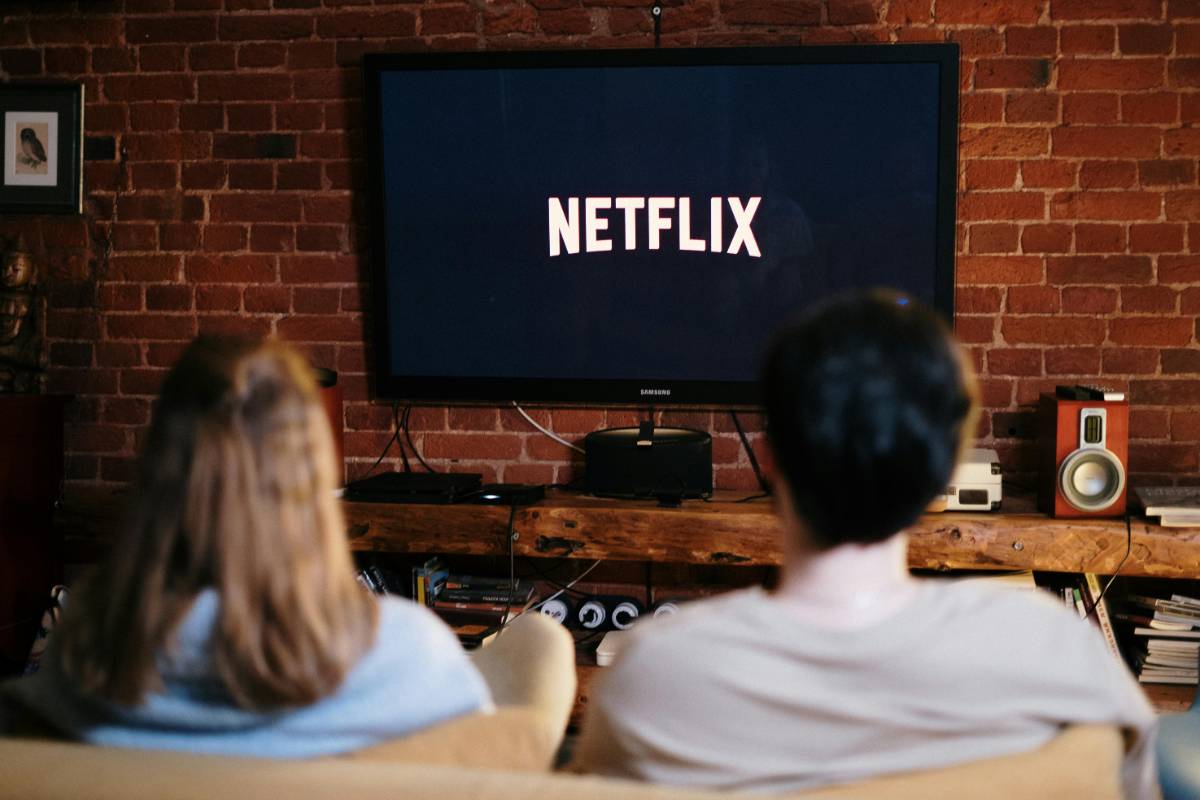Why So Many Hollywood Stars Are Turning to Television
26 Sep 2025
Read Time: 4 min read

In recent years, there has been a noticeable shift in Hollywood's entertainment landscape, with some of the biggest stars trading the glitz and glamour of the silver screen for the small screen of television. While television once played second fiddle to film in terms of prestige, this dynamic has changed significantly in the past decade. The rise of high-quality series, streaming platforms, and new storytelling formats have made television an increasingly attractive option for major actors, directors, and producers alike.
 The Changing Landscape of Television
The Changing Landscape of TelevisionHistorically, television was seen as a medium for lesser-known actors and less ambitious projects, with film reserved for the elite. However, as the television industry evolved, especially with the rise of cable networks like HBO and AMC in the early 2000s, the landscape began to change.
With shows like *The Sopranos*, *Breaking Bad*, and *Mad Men*, TV started to produce content that rivaled film in terms of storytelling, production quality, and character development. This evolution reached new heights with the rise of streaming platforms such as Netflix, Amazon Prime, and Hulu, offering an even wider variety of content and giving Hollywood stars the opportunity to explore roles they might not have considered in the film industry.
The Appeal of Streaming PlatformsStreaming platforms have been one of the most significant factors in the migration of Hollywood stars to television. With the rise of Netflix, Amazon, and Disney+, these platforms have dramatically transformed how people consume television and film. One of the primary appeals of streaming platforms is their ability to offer more creative freedom compared to traditional television networks.
Unlike the typical constraints that come with network television, streaming services allow for more flexibility in terms of storylines, character development, and episode length. They also provide a more lenient approach to content restrictions and standards, allowing creators and actors to push boundaries in ways that were once unimaginable in traditional TV formats.
This creative freedom has drawn big-name stars looking to step outside the traditional confines of Hollywood films. Stars like Reese Witherspoon, Nicole Kidman, and Jennifer Aniston have found new homes on streaming platforms, with projects like *Big Little Lies* (HBO), *The Morning Show* (Apple TV+), and *The Politician* (Netflix). These shows not only offer new opportunities but also allow for more diverse and complex character portrayals that may have been limited in mainstream cinema.

For many Hollywood stars, working in television presents long-term career opportunities that are not always available in film. While movies are typically one-time projects, with stars often having to wait years between major film roles, television offers a more consistent and ongoing presence in the industry.
Stars in successful television series can enjoy long-term roles that allow them to stay in the public eye for multiple seasons, often allowing their characters to evolve in more profound ways. Shows like *Stranger Things* (Netflix), *Game of Thrones* (HBO), and *The Crown* (Netflix) feature actors who have become synonymous with their roles over several years, building a deep connection with their audience.
The consistent nature of television work also means that actors can enjoy regular paychecks, job security, and the ability to explore their craft over a prolonged period. This contrasts with the film industry, where actors often face long periods of unemployment between projects and have to continuously seek out new opportunities. For stars who may be in the latter stages of their careers, television provides a reliable avenue to remain active in the industry.
💡 Discover More from Hollywood
Hollywood stars are no longer confined to the kinds of roles they used to take in film. Television, particularly through the advent of streaming platforms, has allowed actors to explore roles and genres they might not have been able to tackle in a blockbuster movie or a traditional TV show.
Take Matthew McConaughey, for example, who shifted gears from romantic comedies to darker roles in projects like *True Detective* (HBO). His performance in the first season of *True Detective* was widely regarded as one of the best in his career, earning him a Golden Globe and an Emmy nomination. Similarly, star actors like Julia Roberts and Tom Hanks, once considered major film icons, have embraced roles in TV shows and miniseries, proving that there is artistic merit in long-form television projects.
Additionally, the more relaxed schedule and atmosphere on TV sets allow actors to spend more time developing their characters. This can lead to deeper, more nuanced performances that aren’t always possible in the more constrained format of a two-hour movie. The long-running nature of TV series also enables actors to become more emotionally invested in their roles, providing them with opportunities to experiment and push their creative limits.
Rising Pay and Production BudgetsTelevision salaries for A-list actors have skyrocketed in recent years, making TV an even more appealing option for Hollywood stars. Just as streaming services have allowed for more creative freedom, they have also opened the door for more lucrative deals for top actors.
For example, stars like Sandra Oh and Jodie Comer earned massive salaries for their roles in *Killing Eve* (BBC America), while actors like Jennifer Aniston and Reese Witherspoon reportedly earned around $1 million per episode for *The Morning Show*. As the demand for top-tier content increases, networks and streaming services have offered stars the financial incentives needed to attract them to television, making it a more financially viable career option than ever before.
Additionally, the increased budgets available for high-quality productions on streaming platforms allow for the kind of cinematic storytelling that was previously reserved for film. Series such as *The Witcher* (Netflix) and *The Mandalorian* (Disney+) feature production values on par with big-budget blockbusters, enabling actors to work on visually impressive and globally impactful content.
Television as a Platform for Social CommentaryAnother draw for Hollywood stars is television’s ability to tackle socially relevant and politically charged topics in ways that film may not always be able to do. Television allows for more episodic exploration of complex subjects like race, gender, class, and sexuality, with actors having the ability to represent and explore these themes in meaningful and sustained ways.
For example, *Big Little Lies* explores issues of domestic violence, while *The Handmaid’s Tale* (Hulu) has become a cultural touchstone in its commentary on gender equality and government control. These kinds of roles allow actors to use their celebrity status to raise awareness for important social issues, creating a lasting impact beyond mere entertainment.
Moreover, television’s format gives characters and stories time to breathe, which is ideal for addressing difficult or complex topics. A 10-episode season allows for greater depth and exploration of issues, while a film often has limited time to make a point.
The Changing Demographics of Television AudiencesFinally, the evolving demographics of television audiences play a significant role in why so many Hollywood stars are opting to make the transition to the small screen. With the rise of streaming services, television content is no longer solely aimed at a niche or particular demographic.
Audiences now come from all walks of life, offering a wider and more diverse range of voices and stories. This shift has led to an increase in the representation of minorities, women, and other marginalized groups on television, making it a more inclusive and attractive platform for stars looking to be a part of a more diverse narrative landscape.
Stay Informed
Get the latest and most accurate news delivered straight to your inbox. Subscribe now and never miss an update.

Rajat Sen
An insightful voice in the industry, crafting content that informs, inspires, and connects with readers.
View all articles →Continue Reading

Travel
How to Make the Most of Business Class Benefits on Your Next Corporate Flight
By David Thompson
02 Oct 2025

Travel
How to Make the Most of Your Corporate Travel Perks – Expert Tips Inside!
By James Carter
31 Aug 2025

Travel
Exploring Indigenous Cultures: Destinations and Responsible Tourism Tips
By Rahul Sharma
20 Sep 2025

Travel
Why Your Corporate Travel Policy May Be Costing You More Than You Think
By David Thompson
18 Sep 2025

Travel
How to Make the Most of Your Airline Miles – Tips from Travel Experts
By Olivia Mitchell
23 Sep 2025












